Search Results
Showing results 21 to 39 of 39
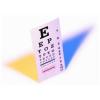
Measure Your Ability to See
Source Institutions
In this exercise (Activity #2 on page), learners test their distance vision to evaluate their overall eyesight.

Colorblind Dogs
Source Institutions
This activity (on page 2 of the PDF under SciGirls Activity: Colorblind Dogs) is a full inquiry investigation into dogs' ability (or inability) to see color.
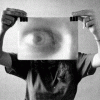
Giant Lens
Source Institutions
In this activity about light and refraction, learners discover how a lens creates an image that hangs in midair.

How Our Environment Affects Color Vision
Source Institutions
In this lab (Activity #1 on page), learners explore how we see color.

Peripheral Vision
Source Institutions
In this optics activity, learners conduct an experiment to explore peripheral vision. Learners collect data about their ability to see shapes, colors, or letters using their peripheral vision.
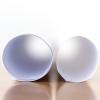
Lateral Inhibition
Source Institutions
Which one of your eyes are dominant? Do they act independently or are they equally "in control?" This activity explores how your eyes work (or don't work) together.
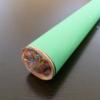
Kaleidoscope
Source Institutions
In this activity, learners build inexpensive kaleidoscopes using transparency paper and foil (instead of mirrors).
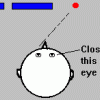
The Blind Spot
Source Institutions
In this activity (1st on the page), learners find their blind spot--the area on the retina without receptors that respond to light.

Dark Adaptation
Source Institutions
In this activity (6th on the page), learners investigate how photoreceptors in the eye (rods and cones) "adapt" to low light conditions.
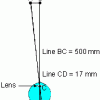
Measuring Your Blind Spot
Source Institutions
In this activity, learners calculate the width (horizontal diameter) of the blind spot on their retina. Learners make a blind spot tester using a piece of notebook paper.
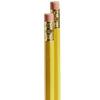
Depth Perception
Source Institutions
In this easy demonstration (3rd on the page), learners explore depth perception by conducting a test with two pencils.
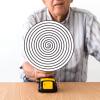
Depth Spinner
Source Institutions
Experience a spinning spiral...you won't be hypnotized, but you'll see what happens when you look away. It's like getting off a merry-go-round and everything keeps moving.
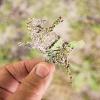
Disappearing Act
Source Institutions
Make a camouflage cut-out animal! Using patterned paper or magazine pictures from around the house, use your craft skills to make a paper animal that blends into its background.
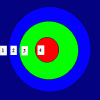
Drop IT!: Depth Perception
Source Institutions
These two activities (4th on the page) demonstrate the importance of two eyes in judging depth.
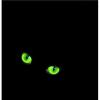
Seeing in the Dark
Source Institutions
In this activity (17th on the page), learners investigate why you cannot see colors in dim light.

Accommodating Accommodation
Source Institutions
In this demonstration (18th on the page), learners conduct a simple test to explore how the cornea refracts light, which is further bent by the eye lens through a process known as accommodation.

Shifting Backgrounds, Shifting Images
Source Institutions
In this quick activity/demonstration (5th on the page), learners explore depth perception.
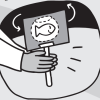
Thaumatrope
Source Institutions
In this activity, learners make an optical illusion toy from the 1800s to explore persistence of vision.
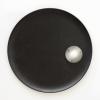
Spinning Cylinder: Make a triangle appear on a spinning wheel
Source Institutions
Spin a short piece of PVC pipe that's been marked up, and watch a triangle appear. Enjoy this optical illusion from the Exploratorium's Science Snack series.
